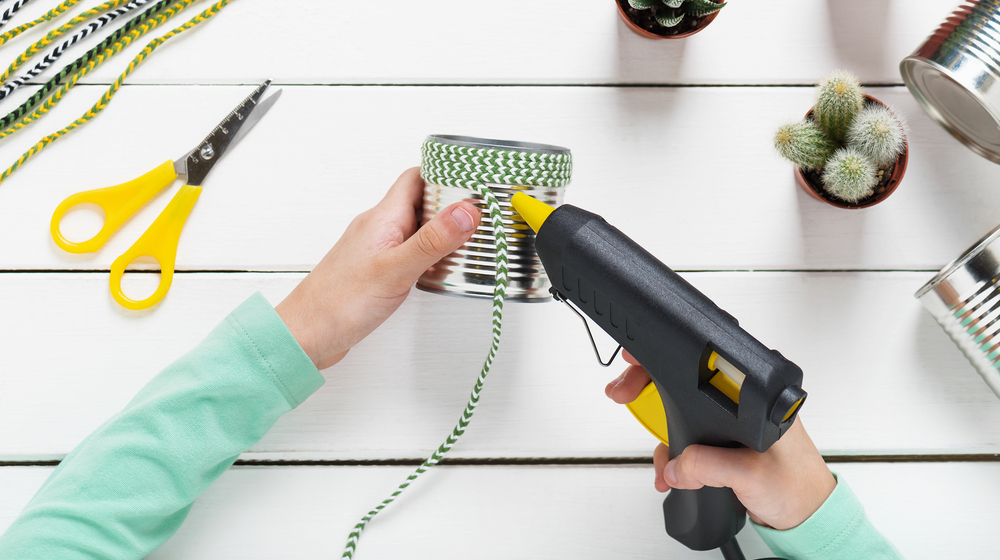
Vogue Knitting magazine is a great publication for anyone who enjoys knitting. Vogue Knitting magazine is published biannually by SoHo Publishing LLC. It features knitting patterns, yarn reviews and interviews with designers. We will be looking at some of these issues in this issue. Below are some of these topics.
The Ultimate Knitting Book
The Ultimate Knitting Handbook for Vogue Knitting features input from more 50 top experts. It is the only knitting book that offers such comprehensive guidance.

40th anniversary
Vogue Knitting celebrates their 40th anniversary in fall with a special Collector's Issue featuring 18 knit designs from five top designers. Mari Lynn Patrick is honored as the magazine's 40th Anniversary. She has worked with Vogue Knitting over the past 40 years. This issue includes her three winning designs.
Techniques
Techniques of Vogue Knitting provides a comprehensive guide on the world of knitting. It offers advice and tips for both advanced and novice knitters. You will also find 50 patterns from world-renowned knitwear designers in this book.
Interviews
The Vogue Knitting podcast features interviews with fashion designers, knitters, and other enthusiasts. The podcast features everything, from knitting patterns to yarn reviews. Vogue Knitting was established in 1932 by SoHo Publishing LLC. Its archives date back to 1932 and it was previously published by Conde Nast. It was closed in 1969. However, the magazine was relaunched by Art Joinnides, founder of Butterick Company, who saw a need for a knitting magazine. Norah Gaughan is the current editor of the magazine. It is based in New York City.
Styles
Styles of Vogue Knitting can be a great resource for anyone who has ever wanted to know how to make the perfect cape. It covers classic and global designs and teaches key techniques. It contains design advice as well as 50 patterns drawn by the best knitwear designers around the globe.

Trisha Malcolm
Trisha Malcolm is the executive brand strategist for Vogue Knitting and is the editor of its Sixth & Spring books imprint. Since her childhood, she has been knitting ever since she was four years. She is also an artist teacher and editor of many magazines and books on knitting and handcrafts. Malcolm was the editor at Knit Simple magazine. She lives in Brooklyn together with her son.
FAQ
What kinds of hobbies are appropriate for introverts.
The ability to focus on just one thing is a hallmark of introverts. They are more comfortable with solitary activities, such reading, writing, music, and watching movies.
They also enjoy spending quiet time alone. They are not social creatures and don't want to be around people all day. They are often bored when surrounded in people.
Introverts will often choose hobbies that require them alone. An introvert might like to read, listen to music, take photographs, paint, write poetry, or even create art.
Some introverts prefer to live alone. They are able to concentrate on their hobby while not being distracted by other activities.
Can I make money from my hobby?
Many hobbies can help you make extra money.
If you are passionate enough about your hobby to decide to sell it,
A website might be a good idea if your hobby is collecting stamps.
You can make extra money without the hassle of buying and selling stamps.
Another option would be to create a YouTube channel where you talk about your hobby.
This allows one to share their passion with others, potentially generating additional revenue through the offering of premium content.
What are good hobby ideas?
You can find the best hobbies that you love doing for yourself. If you love what you do then you'll find it much easier to keep going. This will give you a reason for not feeling well, or tired.
Hobbies that we all know and love include gardening, painting and crafts, photography, cooking, sports and games, reading, music, film-making, collecting, cycling, walking, dancing, writing, playing instruments, etc.
Another option is to volunteer at a local charity shop.
Perhaps you want something more adventurous. Consider scuba diving and skydiving.
If you want to go further afield, there are plenty of unique ways to spend time in nature. These include caving.
Statistics
- A new survey by Pew Research Center of teens ages 13 to 17 finds that 36% of girls feel tense or nervous about their day every day; 23% of boys say the same. (pewresearch.org)
- In comparison, men in the “no humor” condition were refused 84.6% of the time and were only accepted 15.4% of the time. (time.com)
- I am 100% biologically a woman (discover.hubpages.com)
- The intensity of the dialogue partners' bond at the end of the forty-five-minute vulnerability interaction was rated as closer than the closest relationship in the lives of 30 percent of similar students. (time.com)
- This 100% accurate personality-analyzing hobby quiz discovers your passion based on your characteristics. (quizexpo.com)
External Links
How To
How to learn how to play a musical instrument
There are many ways you can learn to play music. You have the option of going to school, buying a book or taking lessons from someone who plays an instrument. Or, you can watch videos online. Here are some tips and techniques to help you learn if your goal is to create your own learning path.
-
Find something that interests or appeals to you. If you don’t like any of these instruments, you can always try another. It would be hard to get into playing an instrument if you don't enjoy doing it.
-
Be patient. Learning something new takes time. Do not expect to be able to master every aspect of the subject immediately. Instead, continue to practice each day.
-
Practice regularly. This can be done even when you are tired. This will ensure that you won't forget what you learned.
-
Pick a place where you can practice. Ideal is a quiet area where you don't have to disturb anyone else. Make sure there aren't distractions. You should avoid loud music being played near you.
-
Have fun. Music is meant to be enjoyed. Make sure you have fun while practicing. Enjoying yourself will motivate you to continue going at it.
-
Set goals. Set goals. You'll know exactly what you must achieve. Therefore, you will have no excuse for failing.
-
Keep track of your progress. Keep track of all your successes and failures. It will help you become a better person over time.
-
Take breaks. Sometimes you just need to take a break. It is a good idea to take breaks so you can think about everything.
-
Ask questions. If you have any questions or doubts about the instrument, ask other people. They may be willing to help.
-
Listening is the best way of learning. Many musicians enjoy listening to their favorite songs and trying to imitate them. This allows them to grasp the basic concepts of the song.
-
Read books. Lessons learned from books are more valuable than videos and classes. Books contain information you will not find anywhere else.
-
Join a band. You will be able to practice more when you play with others. Plus, you will find people with similar interests to you.
-
Take a look at tutorials. Tutorials are brief videos that cover a variety of topics in great detail. Tutorials are short videos that focus on one part of the instrument. Watching tutorials can help you understand difficult parts of the instrument.
-
Explore different learning methods. Some prefer to learn by listening, while others prefer reading. Experiment until you find what works best for you.
-
Practice makes perfect. It is not possible to become an expert overnight. Instead, you must put in lots of effort before becoming skilled enough to perform well.
-
Begin a group of musicians. Listening to other people play their favorite songs can help you learn faster.